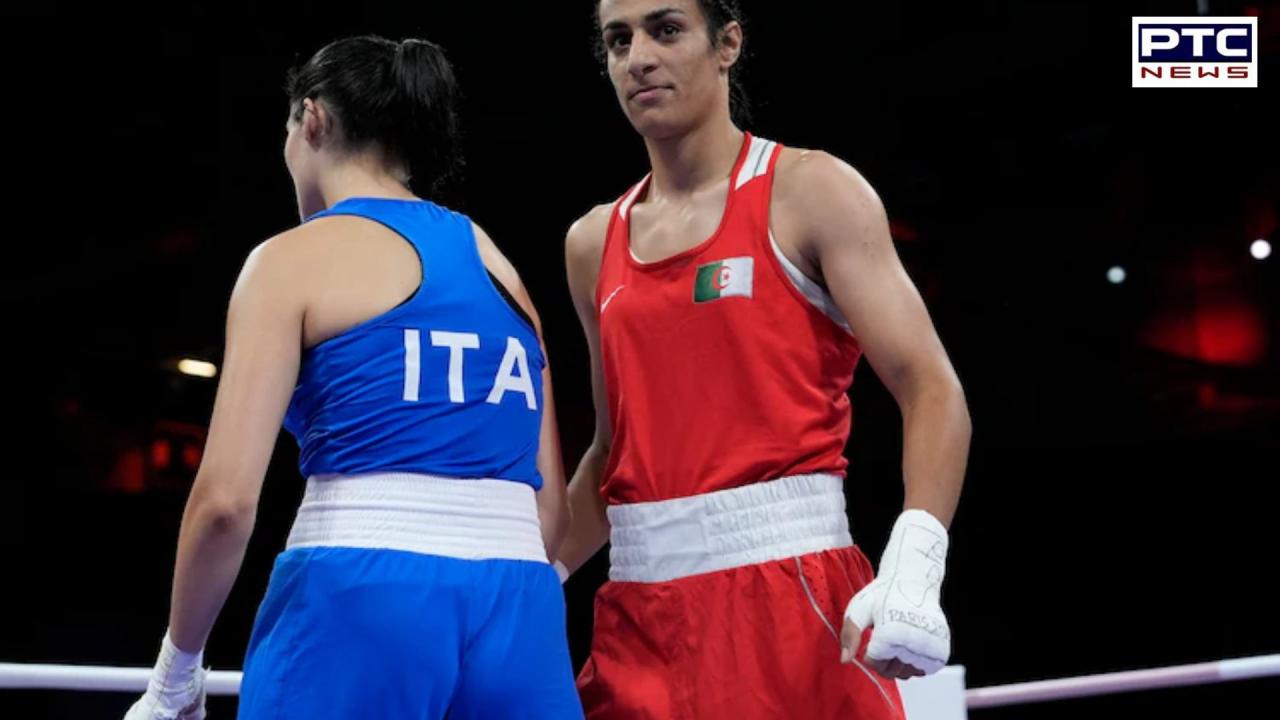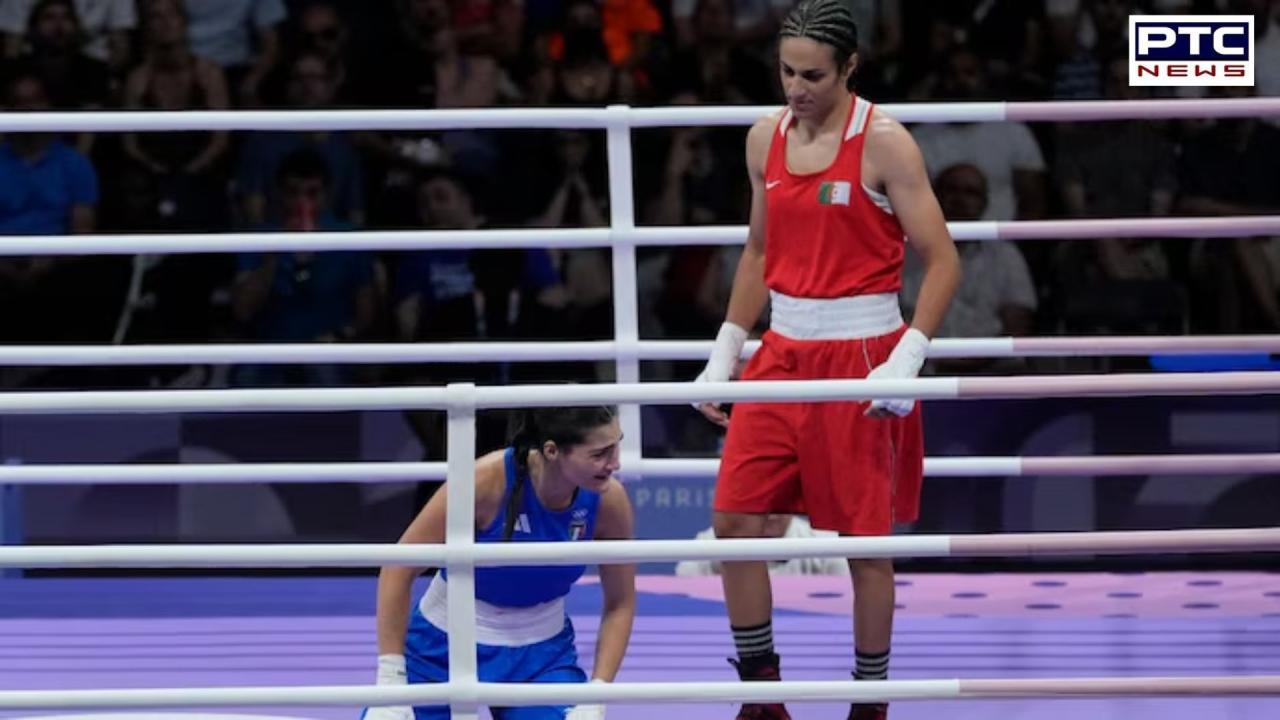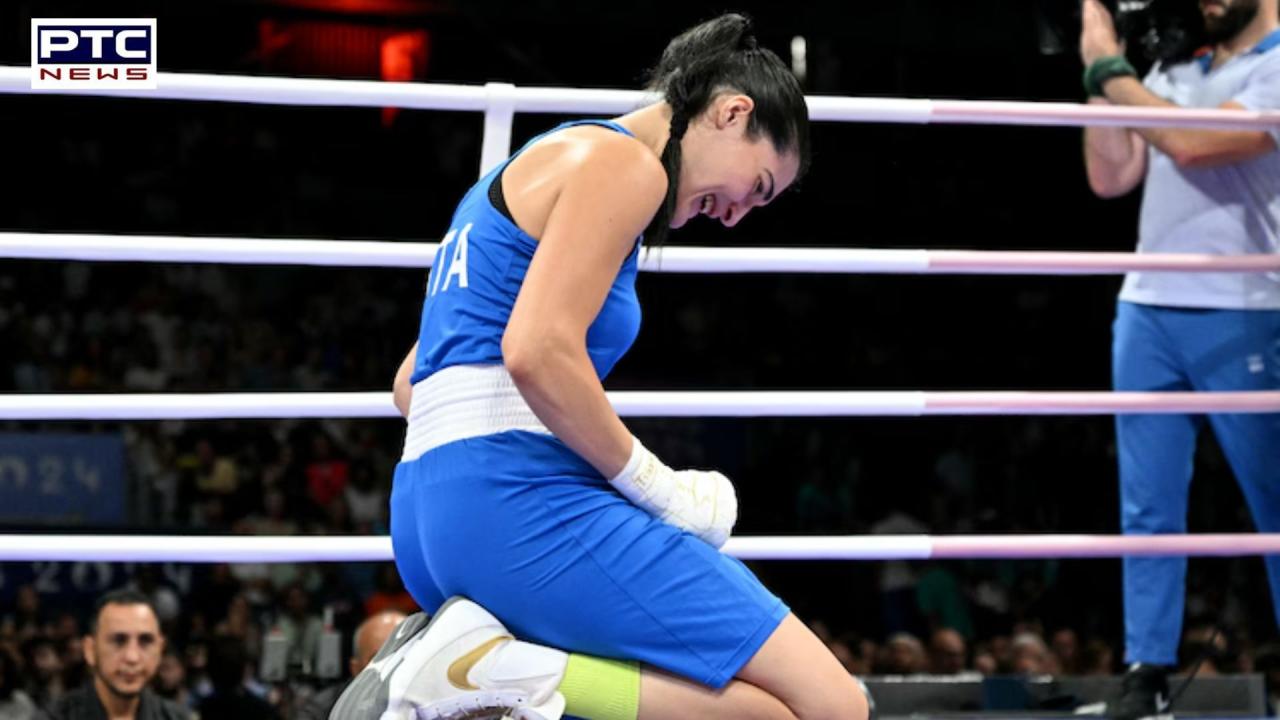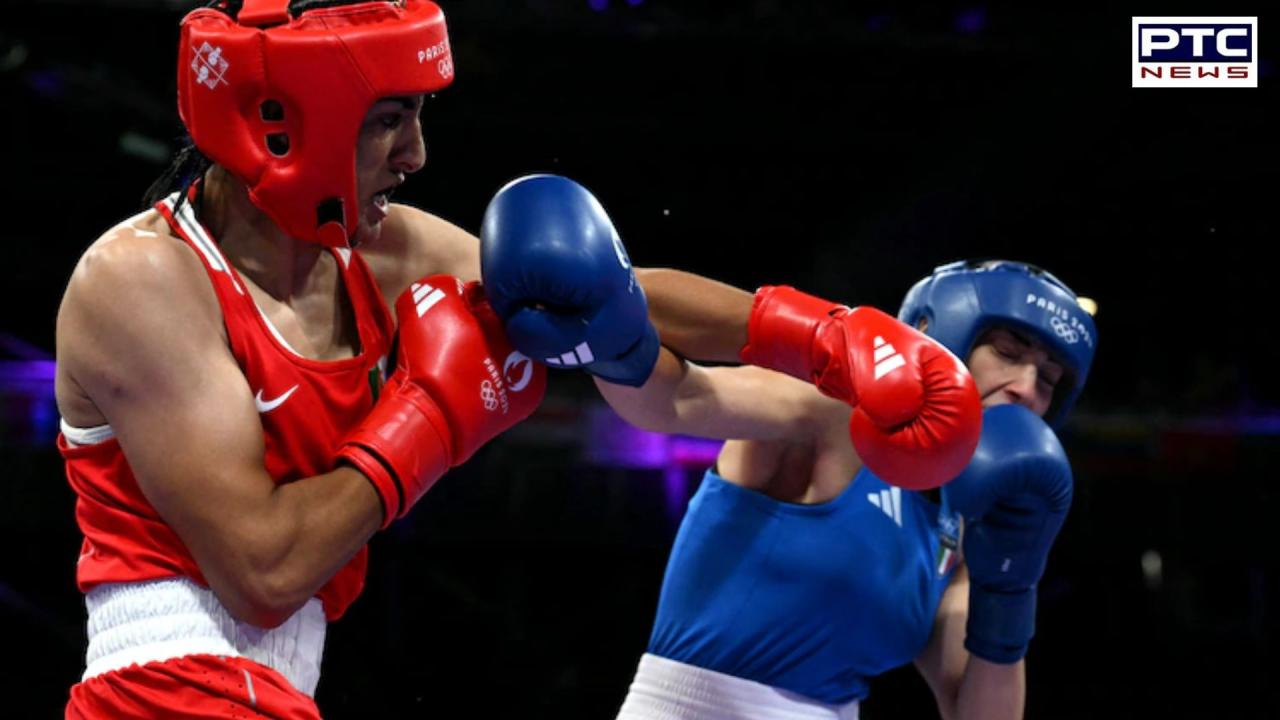Paris Olympics 2024: Boxer Imane Khelif at the center of gender controversy – Whats the truth?
Because of "elevated levels of testosterone," Imane Khelifwas disqualified from the 2023 World Championships in New Delhi. However, why was she permitted to compete in the Olympics?

Paris Olympics 2024: Italian boxer Angela Carini, in tears, was forced to quit from her battle against Algeria's Imane Khelif in the 66 kg category. "I have never been hit so hard in my life," she said. Just one punch and forty-six seconds later, the Paris Olympics were engulfed in their largest controversy to date.
Carini was struck twice in those forty-six seconds, perhaps breaking her nose. It was sufficient for her to pull out of the match, which sparked discussion on social media over the contest's fairness as people began to refer to Imane Khelif as a 'transgender' and 'biologically male.'

Khelif's disqualification from the 2023 World Championships in New Delhi because of 'elevated levels of testosterone' did not help. Taiwan's Lin Yu-Ting, who is competing in the Olympics in Paris, was also disqualified the previous year.
She supposedly tested positive for gender identity and had XY chromosomes, which are normally found in guys. XX-sex chromosomes are found in most women. The head of the International Boxing Association, Umar Kremlev, then claimed that Khelif attempted to "pretend to be women" and "deceive" her peers.
DIFFERENT BODIES, DIFFERENT ELIGIBILITY RULES
In that instance, why was Imane Khelif permitted to compete in the Olympics? The reason for this is that the boxing events are overseen by two distinct bodies.
The International Boxing Association (IBA), which oversaw the World Championships, was subsequently outlawed because of claims of corruption and problems with governance. The boxing competition in Paris is overseen by the International Olympic Committee (IOC).

It appears that the dispute started because the two organizations had varying medical requirements for participants. Khelif and Lin were declared to be eligible competitors by the IOC.
At a press conference, IOC spokesman Mark Adams stated, "They are women on their passports, they are women who have competed in the Tokyo Olympics and have been competing for many years."
The IOC's recent modification of its criteria regarding testosterone levels is at the center of the debate. Hormone adjustments are no longer necessary for athletes to compete. Furthermore, the IOC has maintained that physical advantage was not always determined by testosterone.
Imane Khelif does not identify as transgender or intersex, despite receiving a lot of backlash on social media from people like tech millionaire Elon Musk and novelist J.K. Rowling.
"When will this insane behaviour end? "Men cannot change into women," tweeted former prime minister of the UK Liz Truss.

Rowling said, "This isn't a game. This is guys enjoying their power over women, from the bullying cheat in red to the organisers who let it happen."
But Khelif, who came from modest beginnings and once sold bread on the streets of her Algerian hamlet, has spent many years fighting in international boxing competitions, including the Tokyo Olympics in 2020. She has been granted approval to participate after meeting the IOC's requirements.
A discussion over athletes with Differences in Sexual Development (DSD) competing in women's competitions has been sparked by this development.
Also Read: Air India halts flights to and from Tel Aviv till August 8 amid middle east crisis
WHAT IS DSD? WHY IS IT AN ISSUE?
According to the official Olympics website, those with Differences in Sexual Development, an uncommon disorder, are simply raised as females but have XY sex chromosomes and testosterone levels in the male range. These women also possess a skeletal advantage, more muscle mass, and faster twitch muscle.
It might also involve genitalia that are different from those that are normally connected to a person's gender at birth. This can therefore pose a significant safety risk in combat sports like boxing. Athletes with DSDs should, according to IOC regulations, be included by default and should only be disqualified from women's competition in cases where there are "clear fairness or safety issues."
But the debate over it is not new; in the Caster Semenya case, for example, the question of testosterone restrictions attracted attention. South African runner Semenya took home gold in the 2012 and 2016 Olympics.
She was disqualified from the 2020 Olympics after it was discovered that she naturally produces more testosterone in her body than is typical for a woman. Khelif will make his boxing comeback on Saturday when he competes in the light welterweight class quarterfinals. Anna Luca Hamori of Hungary will be her opponent this time.
Nevertheless, one of the most contentious scenes in Olympic history will undoubtedly be remembered as the picture of a distraught Carini collapsing to the ground in tears after pulling out of the match.
Also Read: Paris Olympics 2024: 'Free visas for everyone if Neeraj Chopra wins gold'
